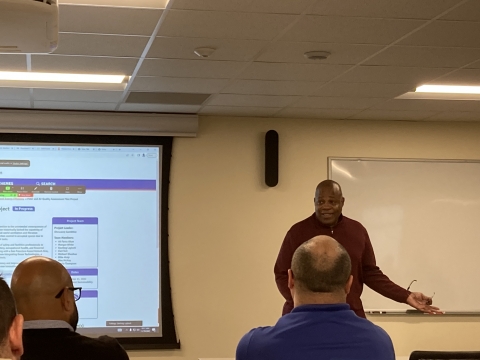You are here
Energy-Efficient HVAC Infection Control (In Progress)
Recent Project Updates
-
8/5/2025Morgan White, Sarthak Prasad, and Quinn Connolly met with Mark Ginsberg, Paul Francsico, and Sterling Laylock to discuss HVAC projects. Below are notes from the meeting:Techlink: Contaminant Flow Calculator and Intelligent HVACAttended by - Sarthak...
-
1/18/2024Please see attached
Project Family
-
Building-Level Energy Efficiency
- Building Envelope Pilot Project
- Convert Fume Hoods from CAV to VAV
- ECE Net-Zero Energy Building
- Energy Models for Campus Facilities
- Energy-Efficient HVAC Infection Control
- Facility Standards
- Graduate Dance Space
- LEED Certification
- Lighting Conservation Projects
- Plant Sciences Window Shades [ARCHIVED]
- Reduce Active Fume Hoods
- Weatherization of Small Campus Buildings [ARCHIVED]
Associated Collections
Description
Background
Project Team
-
Project Leader:
Dhruvaraj GambhireTeam Members:
- Ali Feroz Khan
- Morgan White
- Sterling Laylock
- Carl Tutt
- Michael Sheehan
- Mike Alsip
- Alec McKay
- Maria Thompson
Dates
-
Approved December 11, 2021Approved by Student Sustainability Committee
Project Location(s)
This map is interactive! Click (or touch) and drag to pan; scroll (or pinch) to zoom.

